Hey everyone, welcome to FutureProof - my Tech and Sustainability Digest.
I received some feedback that the last edition of this newsletter was a little text heavy, so this week I’m cutting back a bit on the text, and giving you more bulleted highlights from the stories. Be sure to let me know if you think this is an improvement.
As always this newsletter is dedicated to surfacing and sharing good news stories across tech and sustainability. If good news sounds like something you need, read on. And please share this newsletter with anyone else you feel could do with a little cheering up!
In the News:
Science/Tech

Europe's Dynamic Duo: Vivaldi and Proton Team Up to Challenge Big Tech
In a bold move that screams "Europe's got talent," Vivaldi, the Norwegian browser maestro (and my favourite browser), has teamed up with Switzerland's Proton to embed Proton VPN directly into the Vivaldi browser. This power play offers users seamless, built-in privacy without the faff of additional downloads. It's a clear signal: European tech is stepping up, providing robust alternatives to the Silicon Valley status quo.
Seamless Integration: Proton VPN's free version is now baked into Vivaldi's desktop browser, offering instant privacy perks.
European Synergy: Both companies, rooted in Europe's rich tech landscape, champion user privacy and data protection.
Challenging the Giants: This partnership underscores Europe's commitment to offering viable alternatives to dominant US tech firms.
Kismet: While this integration currently graces only the desktop version, whispers in the tech corridors hint at potential mobile expansions. The European tech renaissance is not just coming; it's here. 👉 Full story here

Quantum Leap: Computers Now Rolling the Ultimate Dice
In a groundbreaking twist, quantum computers have achieved what was once deemed sci-fi: generating truly random numbers. Researchers harnessed Quantinuum's 56-qubit system, employing entangled qubits to produce randomness beyond the grasp of classical physics. This isn't just a nerdy parlour trick; it's a monumental stride towards unbreakable encryption and rock-solid cybersecurity.
Quantum Supremacy in Action: Utilising entangled qubits, the team achieved randomness unattainable by traditional computers.
Cybersecurity's New Best Friend: True randomness is pivotal for encryption, making this a potential game-changer in data security.
Verified by Supercomputers: The randomness was cross-verified using classical supercomputers, ensuring its authenticity.
Kismet: While quantum mechanics often feels like a realm of abstract theories, this achievement brings it squarely into practical territory, potentially revolutionising fields from cryptography to complex simulations. 👉 Full story here

The EU Just Put the US on Read – And Europe’s Tech Scene Is Glowing Up
It’s official. The EU has stopped pretending the US is its BFF. Between Trump’s shenanigans and Uncle Sam’s creepy data hoovering, Europe’s had enough, and it's starting to back control. Governments are looking for alternatives to AWS, Azure, and Google Cloud faster than you can say “Schrems II,” and guess who’s loving it? European tech firms, finally getting the chance to step out from Big Tech’s shadow and absolutely shine.
This isn’t just about GDPR compliance or sovereignty anymore. It’s a vibe shift. Europe’s waking up to its own potential, and the US just handed it the perfect excuse to go full glow-up.
Highlights:
🇳🇱 The Dutch parliament is pushing hard to sever cloud ties with US firms because data privacy isn't optional, it’s existential.
🧠 European alternatives like Exoscale, Elastx, and Cleura are suddenly looking sexy as hell.
📜 The US CLOUD Act lets Washington poke around in your data even if it's stored in Frankfurt. EU lawmakers are not amused.
🪧 It’s not protectionism, it’s survival. And it’s opening doors for local innovation to finally lead the charge.
Kismet: Finland’s national weather agency ditched a US provider and built its own cloud platform... for meteorological data. Turns out the forecast now calls for 100% chance of digital independence. 👉 Full story here
Artificial Intelligence

AI Therapist Triumphs: Chatbot Matches Human Counselors in Mental Health Breakthrough
Hold onto your seats, folks! Dartmouth researchers have unleashed "Therabot," an AI-powered chatbot that's not just talking the talk but walking the therapeutic walk. In a pioneering clinical trial, participants with depression, anxiety, and eating disorders engaged with Therabot via a smartphone app. The results? Nothing short of astounding:
Depression: Participants experienced a whopping 51% reduction in symptoms, translating to significant mood boosts and overall well-being.
Anxiety: A 31% average symptom reduction, with many moving from moderate to mild anxiety, or even below clinical diagnosis thresholds.
Eating Disorders: A 19% decrease in concerns about body image and weight, notably outperforming the control group.
Participants reported forming a "therapeutic alliance" with Therabot, akin to working with a human therapist. While not a replacement for in-person care, this AI-assisted approach offers a promising supplement, especially given the shortage of mental health professionals.
Kismet: In a twist that reads like sci-fi, users initiated conversations with Therabot during distressing moments, suggesting that AI can provide real-time support when human therapists aren't available. 👉 Full story here

Apple's Bold Leap: Transforming Your iPhone into a Pocket-Sized Doctor
Apple is making waves in the health sector with plans to revamp its Health app and introduce an AI-powered virtual health service. This initiative aims to transform iPhones into personal health hubs, offering features like food tracking, tailored health recommendations, and even AI-driven workout analysis. Apple's goal is to create a comprehensive health ecosystem, integrating data from devices like the Apple Watch and AirPods to provide users with personalised health insights.
AI Health Coach: Apple is developing an AI agent, trained with data from in-house and external medical experts, to offer personalised health advice based on user data.
Food and Nutrition Tracking: The revamped Health app is expected to include features for tracking food intake and nutrition, enhancing users' ability to monitor their dietary habits.
Workout Analysis via iPhone Camera: Apple plans to utilise the iPhone's back camera for AI-based workout analysis, providing users with feedback to improve their exercise techniques.
Kismet: Apple's ambitious health initiatives could potentially position the company as a significant player in the healthcare industry, blending technology and wellness in unprecedented ways. 👉 Full story here

Microsoft's AI Copilot Uncovers 20 Critical Computer Bugs
In a striking demonstration of AI's prowess, Microsoft's Security Copilot has unearthed 20 critical vulnerabilities in widely used open-source bootloaders: GRUB2, U-Boot, and Barebox. These vulnerabilities could allow attackers to bypass UEFI Secure Boot, installing persistent malware that survives OS reinstalls. This revelation underscores the growing role of AI in fortifying cybersecurity defenses.
AI-Driven Discovery: Security Copilot identified exploitable flaws, including integer overflow issues, in key bootloaders.
Bypassing Secure Boot: The vulnerabilities could let attackers install bootkits, evading security measures like BitLocker.
Persistent Threats: Such malware could maintain control over devices even after OS reinstallation or hard drive replacement.
Kismet: This development highlights a double-edged sword: while AI enhances our ability to detect and mitigate threats, it also raises the stakes in the cybersecurity arms race, as adversaries may leverage similar technologies. 👉 Full story here

OpenAI's Image Generator Goes Public: Unleash Your Inner Artist
OpenAI has thrown open the doors to its latest marvel: an image generator powered by the GPT-4o model, now accessible to all ChatGPT users. This tool has taken the internet by storm, with users crafting everything from Studio Ghibli-inspired art to, well, some less wholesome creations. It created the image above from my profile picture when I asked it to recreate it in the style of Disney Pixar! What do you think, is it an improvement?
Free Access with Limits: While the feature was initially exclusive to paying subscribers, it's now available to all, albeit with a cap of three images per day for free-tier users.
GPU Meltdown: The demand was so intense that OpenAI's CEO, Sam Altman, reported their GPUs were "melting" under the pressure.
Viral Sensation: The generator quickly gained fame for transforming photos into Studio Ghibli-style images, sparking both delight and copyright concerns.
Kismet: In a twist of irony, while users revel in creating whimsical art, some have exploited the tool to fabricate realistic-looking receipts, highlighting the double-edged sword of AI creativity. 👉 Read the full story here
Electromobility

Zeekr's 1.2 MW Charger: The New Speed Demon in EV Charging
Just when we thought BYD's 1,000 kW charger (as I reported on in the last edition of this newsletter) was the pinnacle of EV charging, Zeekr swoops in with a jaw-dropping 1.2 megawatt (MW) charger. That's right, in the blink of an eye (or two weeks, to be precise), the charging game has been upped. Zeekr's vice president, Zhao Yuhui, unveiled this liquid-cooled marvel at the China EV100 Forum, promising to debut it publicly in Q2 2025.
Lightning-Fast Charging: Zeekr's charger boasts a peak power of 1.2 MW, potentially slashing charging times and redefining convenience for EV users.
Rapid Development: In just four years, Zeekr has catapulted from 260 kW chargers in 2021 to this 1.2 MW behemoth.
Infrastructure Expansion: With over 1,500 charging stations in China and plans to exceed 10,000 by the end of next year, Zeekr is not just innovating but also rapidly expanding its footprint.
Kismet: While Zeekr's charger is making waves, it underscores a broader trend: the EV charging arms race is accelerating, and companies are sprinting to outdo each other. This fierce competition could lead to unprecedented advancements in charging technology, making range anxiety a relic of the past. 👉 Full story here

BYD Just Body-Slammed Tesla With a €15K EV
Tesla’s sales are nosediving - thanks largely to Elon’s increasingly toxic brand, and BYD’s pounced on the opportunity like a cat on a sunbeam. Their new Qin L sedan undercuts the Model 3 by nearly 50%, packs a 545 km range, and comes loaded with smart features, making it clear: Tesla’s reign is officially under siege.
Highlights:
🇨🇳 BYD’s Qin L EV starts at just ¥119,800 (~€15,000), less than half the cost of a Tesla Model 3 in China.
🚗 545 km range, digital cockpit, and partial self-driving come as standard.
📉 Tesla’s global deliveries fell 13% in Q1, its worst quarter since 2022.
🧨 Public backlash over Musk’s political antics is hitting Tesla’s sales hard.
👑 BYD has already overtaken Tesla in global EV sales, and this will widen the gap.
Kismet: Elon Musk once laughed off BYD as a joke. Now they’re selling more EVs than him, for half the price. Karma drives electric, apparently. 👉 Full story here
Clean Energy

The World Just Smashed a Renewable Energy Record!
Global renewable energy capacity jumped a whopping 15% in 2024. The biggest leap in over two decades. That’s 585 gigawatts of fresh wind, solar, hydro and more. A full 92.5% of all new electricity brought online in 202 came from the sun, wind or other clean sources. Brilliant news… except it’s still not fast enough to hit our 2030 climate targets. Close, but no solar-powered cigar.
Highlights:
🌍 Global renewable capacity rose by 585 GW in 2024, a record-setting 15.1% increase.
☀️ Solar led the charge, with 76% of new capacity - wind was a distant second.
🇨🇳 China drove nearly two-thirds of the growth, adding a jaw-dropping 374 GW.
📉 At this pace, we’ll fall 28% short of the 2030 goal to triple renewables globally.
💡 The biggest blockers? Bureaucracy, slow grid upgrades, and fossil fuel subsidies still gumming up the works.
Kismet: Hydropower which most folks forget is still a thing, quietly added 12 GW last year, outpacing nuclear and proving it’s not just the old-school cousin at the clean energy dinner table. 👉 Full story here

OECD: Fighting Climate Change Boosts Economic Growth
Contrary to the naysayers, tackling climate change isn't an economic ball and chain - it's a growth engine. The OECD's latest research reveals that aggressive emission cuts could actually increase global GDP by 0.23% by 2040. Ignore the crisis, and we risk losing a third of global GDP this century.
Highlights:
📈Advanced economies could see a 60% GDP per capita boost by 2050
🌍 Lower-income countries might experience a staggering 124% rise in the same timeframe.
🏽 Investing in emission cuts now could lift 175 million people out of poverty by decade's end.
💸 Neglecting climate action could slash a third of global GDP this century.
*Kismet: The Stern Review back in 2006 hinted at this, but now the numbers are even clearer: going green isn't just good for the planet - it's a financial no-brainer. 👉 Full story here

Brazilian Slaughterhouses Fined for Amazon Deforestation
In a landmark ruling, two Brazilian slaughterhouses, Distriboi and Frigon, along with three cattle ranchers, have been ordered to pay $764,000 for purchasing cattle raised illegally in the Jaci-Paraná reserve, a protected area of the Amazon rainforest. This decision underscores the legal accountability of meat processors in environmental degradation.
Highlights:
Illegal Cattle Ranching: The Jaci-Paraná reserve, meant to be a conservation unit, has seen nearly 80% of its forest destroyed, primarily due to illegal cattle grazing.
Environmental Accountability: This ruling is part of broader legal actions targeting slaughterhouses for their role in Amazon deforestation.
Potential Precedent: The case sets a precedent for holding meat processors accountable for sourcing practices that contribute to environmental harm.
Kismet: This ruling could signal a shift towards more stringent enforcement of environmental laws in Brazil, potentially impacting global meat supply chains and encouraging more sustainable sourcing practices. 👉 Full story here

Sponsored
Supercool
See where the low-carbon economy is scaling up.
Latest Publications

Burned for Scrap: The E-Waste Crisis We Can’t Keep Ignoring
One of my latest blog posts tackles a topic that’s literally toxic - e-waste. We ship millions of tonnes of our old gadgets to the Global South every year, where they’re often burned in unsafe, informal settings just to extract scraps of metal. It's a human rights disaster, an environmental nightmare, and a colossal failure of circularity. And it's all avoidable.
Why does this matter? Because the devices you and I use daily - phones, laptops, tablets, are part of this system. And unless we fix the upstream design flaws, enforce take-back regulations, and empower repair economies, we’re just throwing more fuel on the fire.
Highlights:
🔥 Informal e-waste recycling often involves open-air burning, exposing workers (including kids) to deadly toxins.
💰 E-waste contains valuable metals like gold and copper, but they’re being recovered in the worst possible way.
🛠️ Manufacturers have a critical role to play - design for disassembly and repair is essential.
🌍 We need global policy coherence, enforcement, and genuine investment in safe, formal recycling channels.
Kismet: A single smartphone can contain over 60 different elements—including some that are rare, geopolitically sensitive, or nearing depletion. That’s not junk. It’s a treasure trove we’re torching. 👉 Read the full post here
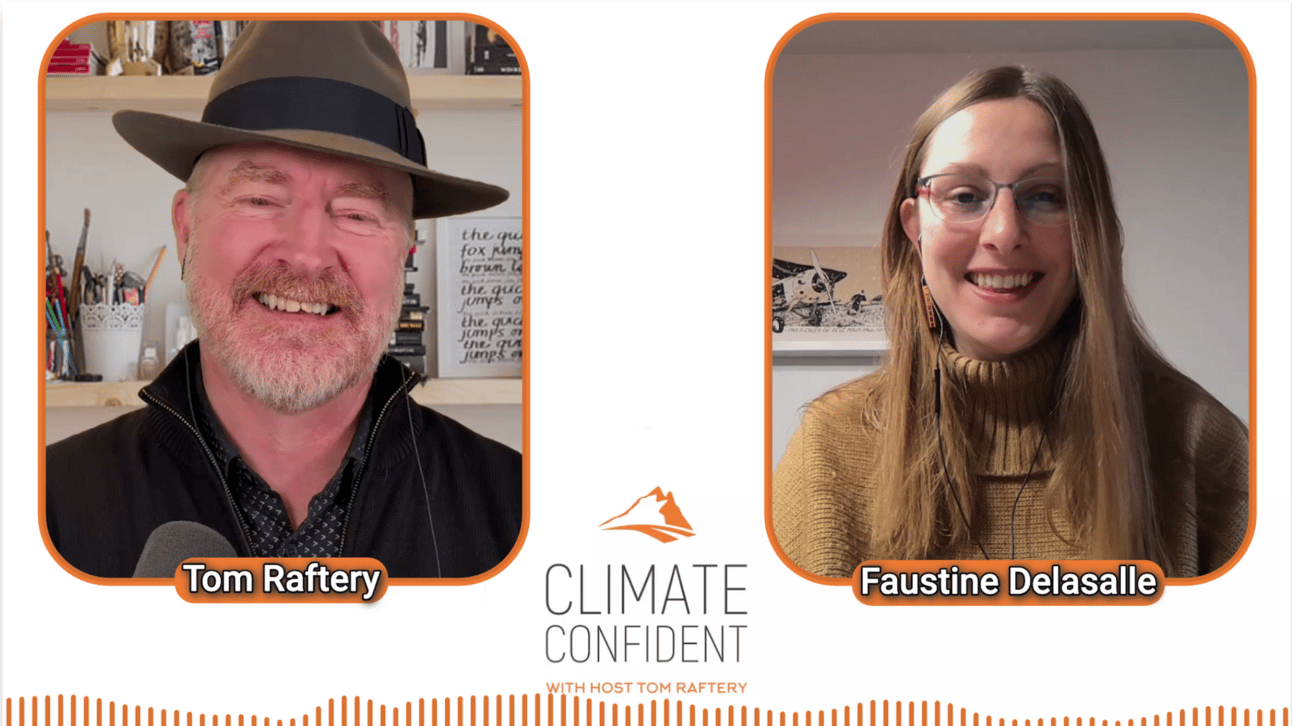
Unlocking $1 Trillion – Why Industrial Decarbonisation Needs a Financial Rethink
In the latest episode of my Climate Confident podcast, I sat down with Faustine Delasalle, CEO of the Mission Possible Partnership, to crack open one of the biggest barriers to industrial decarbonisation: bankability. There's no shortage of clean tech solutions, but unless they can attract serious capital, they'll stay stuck in the prototype phase.
Faustine makes it crystal clear: we’re leaving a trillion dollars of industrial decarbonisation potential on the table because the investment frameworks don’t match the sector’s reality. We need better risk-sharing, faster approvals, and public-private alignment that goes way beyond empty pledges.
Episode Highlights:
💸 Why “bankability” is the #1 obstacle to scaling up low-carbon industry projects.
🏗️ Heavy industries like steel, cement, and shipping need long-term financial confidence, not just flashy announcements.
📉 Public funding isn’t enough - we need blended finance and private sector certainty.
🧩 Faustine's take on how to align financiers, policymakers, and industrials around actual climate outcomes.
Kismet: Europe has over 700 industrial decarbonisation projects on paper, but fewer than 10% are anywhere near financial close. The gap isn’t tech. It’s trust.
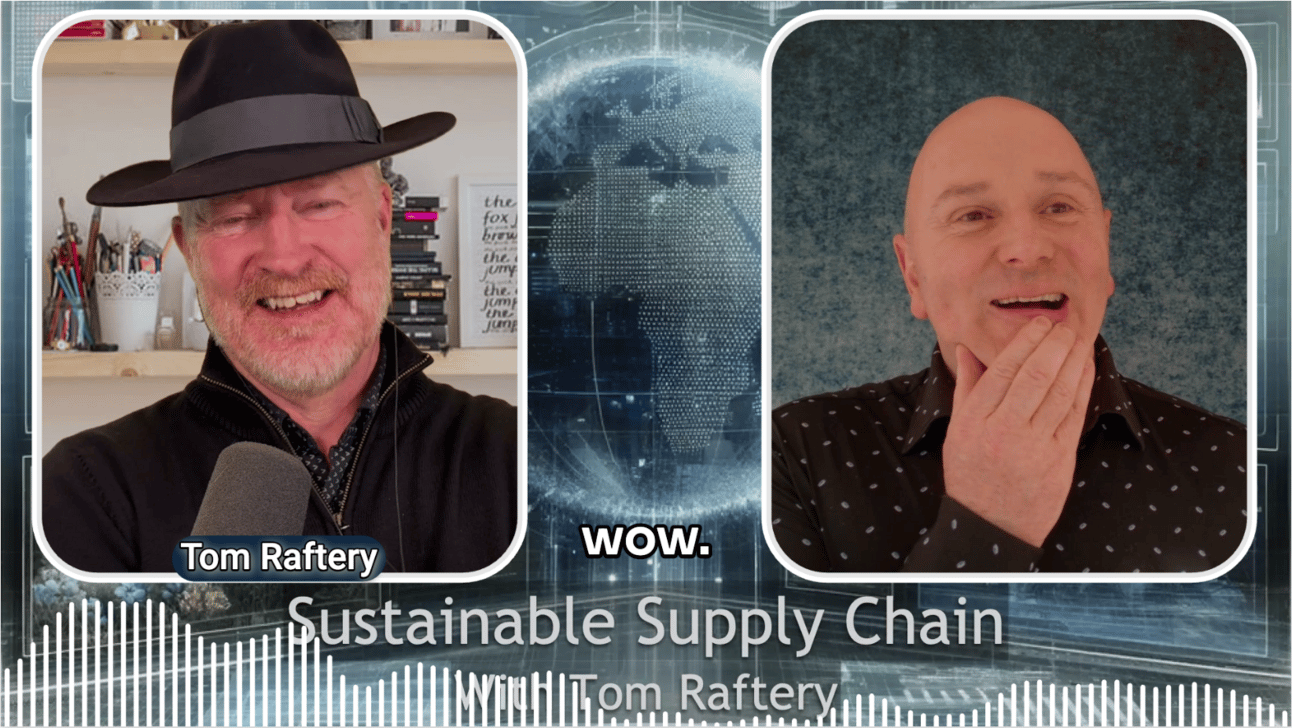
Repair or Ruin - Why E-Waste Is a Supply Chain Problem, Too
In this eye-opening episode of the Sustainable Supply Chain podcast, I spoke with Kenny McGee CEO of Component Sense about the hidden cost of e-waste, and why supply chains need to take a long, hard look in the mirror. From the informal workers burning electronics for scrap in Ghana to manufacturers designing unrepairable devices, this is a mess built into the system.
Kenny pulls no punches. He explains how most “recycled” electronics from the Global North end up in places with no safe recycling infrastructure, creating toxic hazards and crushing any hope of circularity. The solution? Responsibility from design to end-of-life, and real incentives for repair and reuse.
Episode Highlights:
🔄 The brutal reality of informal e-waste economies, and their environmental & human toll.
🛑 Why extended producer responsibility laws aren’t working as intended (and how to fix them).
🧰 How better design, right-to-repair, and reverse logistics can cut e-waste dramatically.
🌍 Why closing the loop isn’t just possible, it’s essential for future-proofing supply chains.
Kismet: A staggering 83% of global e-waste isn’t formally recycled. It either gets dumped, hoarded, or burned. That’s not just waste. That’s missed opportunity, on an industrial scale.
Coming Soon to the podcasts
In upcoming episodes of the podcasts I will be talking to Simon Kim, CEO of GlassDome; Paige Janson, CeO of Engie Impact; Alice Chun, CEO of Slight Design, and John Sturman, MD of NatPower UK.
Don’t forget to follow the podcasts in your podcast app of choice to ensure you don’t miss any episodes.
Featured Charts
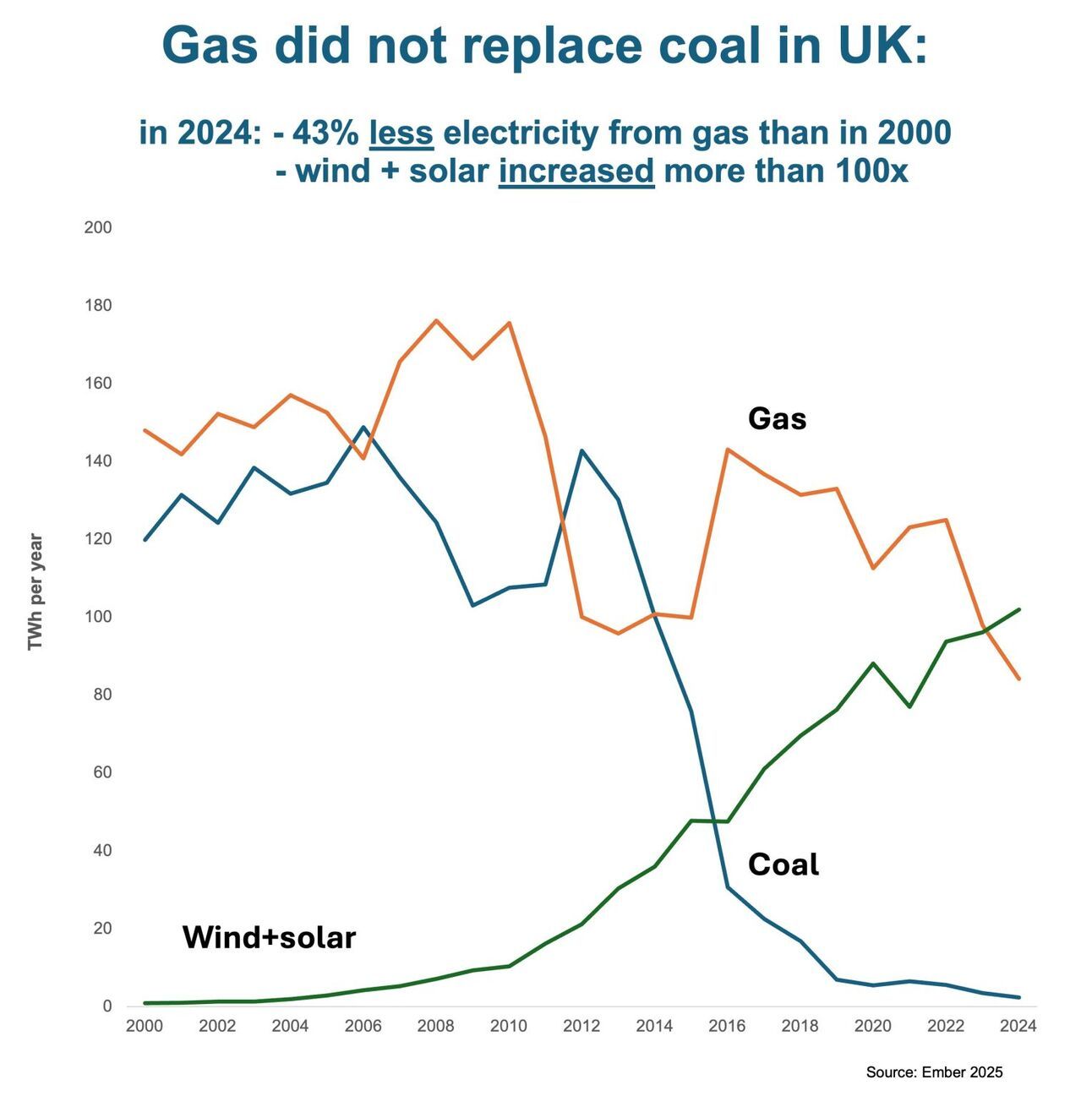
From 2000 to 2024 the UK reduced the amount of coal in its electricity generation mix to 0%. Gas was touted as the replacement, but as you can see from the chart, it was in fact replaced by renewables , and the share of gas in the system has fallen in the same timeframe.
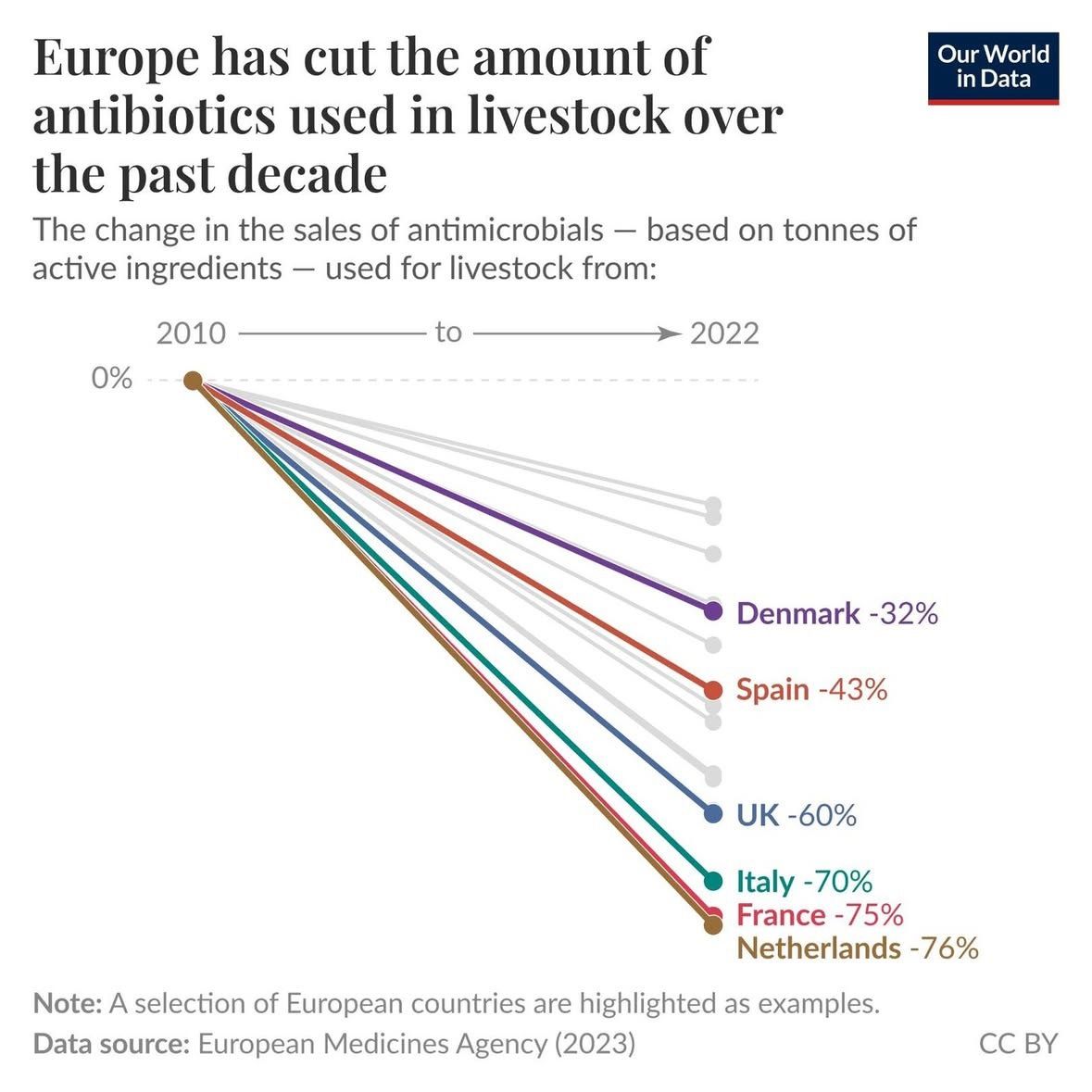
Europe has cut the amount of antibiotics used in the production of food. This has significant positive implications for human health for consumers of European foods.
Misc stuff

I took this photo of this very colorful pigeon on the roof of my house this week! I’m guessing s/he/they is a big reggae fan!

Important public service announcement!

I took this photo of the partial solar eclipse we had here in Spain last Saturday (March 29th) with my handheld phone!
Engage
If you made it this far, well done! If you liked this newsletter, or learned something new, feel free to share this newsletter with family and friends. Encourage folks to sign up for it.
Finally, since being impacted by the tech layoffs, I'm currently in the market for a new role. If you know someone who could benefit from my tech savvy, sustainability, and strong social media expertise, I'd be grateful for a referral.
If you have any comments or suggestions for how I can improve this newsletter, don’t hesitate to let me know. Thanks.
*** Be aware that any typos you find in this newsletter are tests to see who is paying attention! ***
How was today's email?
Finally
Check out this poor kid’s Santa letter
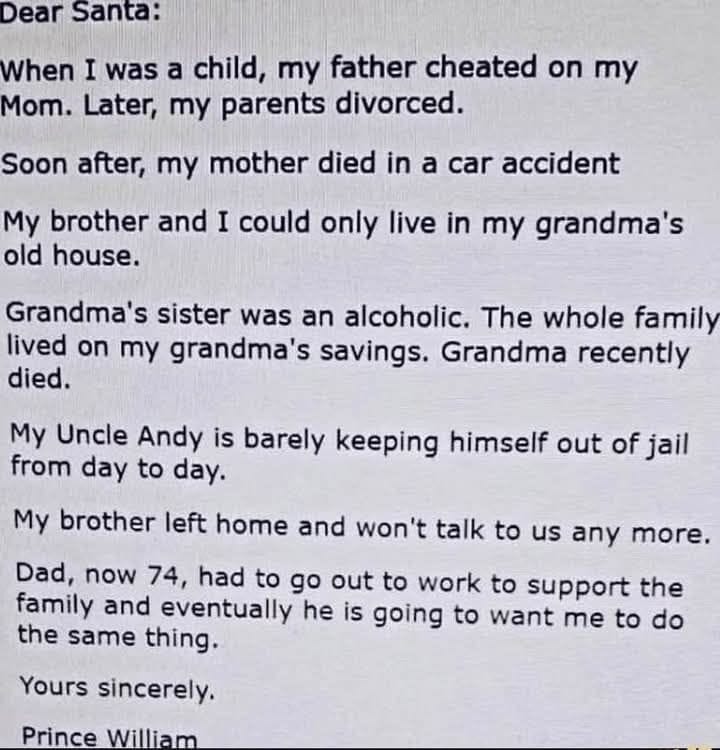
Stay up-to-date with AI
The Rundown is the most trusted AI newsletter in the world, with 1,000,000+ readers and exclusive interviews with AI leaders like Mark Zuckerberg, Demis Hassibis, Mustafa Suleyman, and more.
Their expert research team spends all day learning what’s new in AI and talking with industry experts, then distills the most important developments into one free email every morning.
Plus, complete the quiz after signing up and they’ll recommend the best AI tools, guides, and courses – tailored to your needs.

